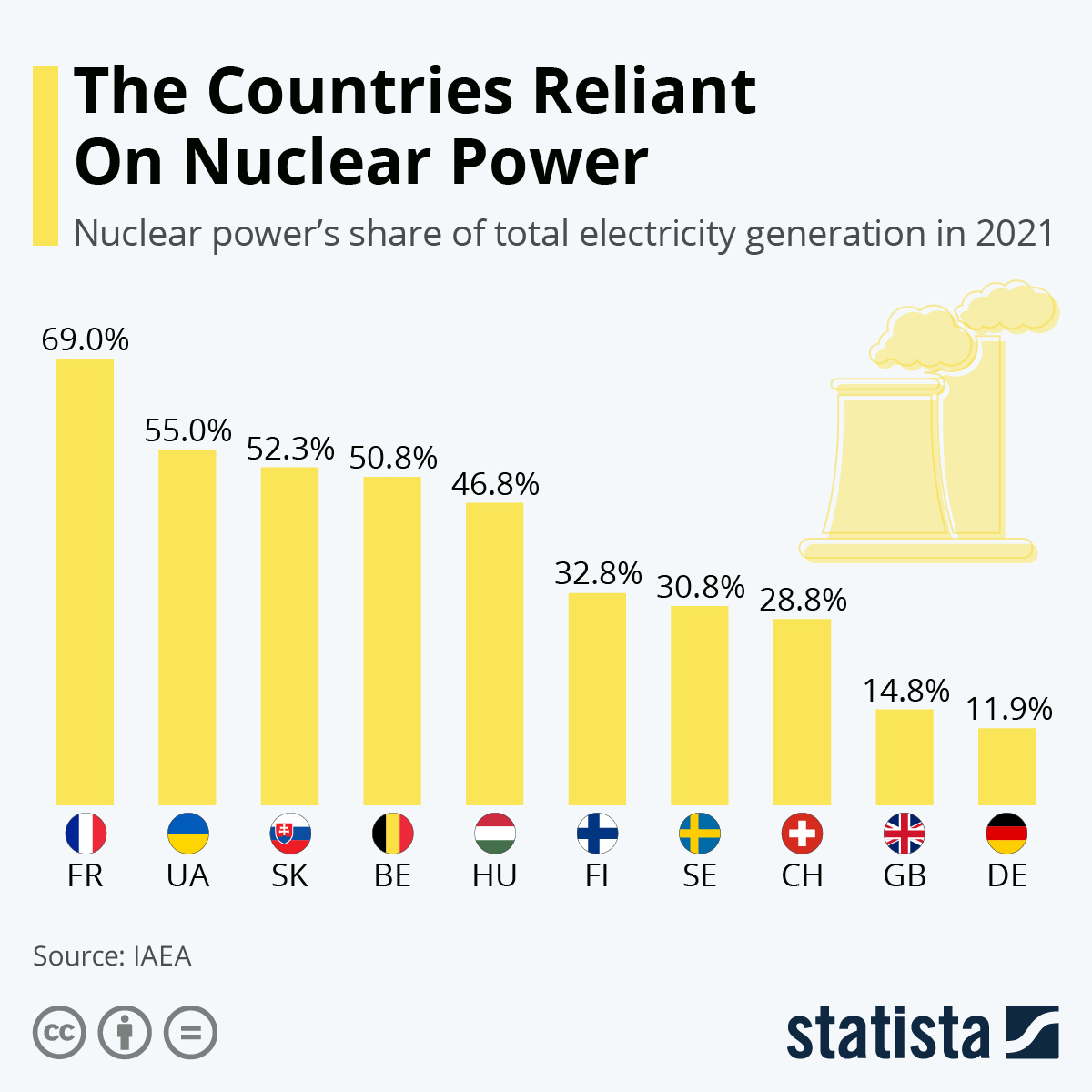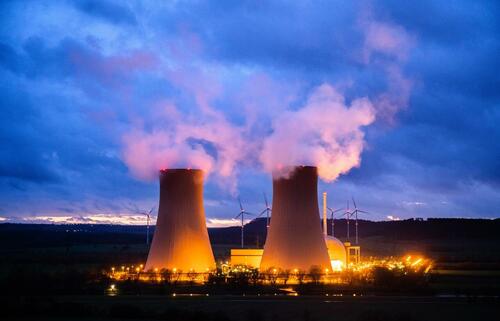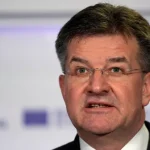
As Europe makes the transition towards green energy, the question of what to do with nuclear power is once more at the center of discussions.
As Statista's Anna Fleck reports, just this month, the EU Parliament voted in favor of EU rules that would determine investments in nuclear and certain gas projects as sustainable and green. This will likely pass into law, as it would take 20 out of the EU’s 27 member states to reject the move. The new law would come into action from 2023.
Data from the International Atomic Energy Agency looks at the use of nuclear energy within the European Union. France is currently leading the bloc, with around 69 percent of the country’s electricity generation based on the energy source.
Nuclear power also made up more than half of the electricity mix last year in Ukraine (55 percent), Slovakia (52.3 percent) and Belgium (50.8 percent).
You will find more infographics at Statista
Germany’s nuclear share is the lowest of the list, last year hitting just below 12 percent of total electricity generation.
Its share has gradually fallen ever since the country decided to phase out its reactors in 2000.
Discussions have reignited, however, in light of Russia’s invasion of Ukraine showing the EU’s vulnerability to global market fluctuations.
There are two camps on the topic: On the one hand, supporters argue that nuclear energy is carbon free and could help fill an imminent energy gap, while on the other, critics are concerned about the energy source’s radioactive byproduct being difficult to dispose of.
As Europe makes the transition towards green energy, the question of what to do with nuclear power is once more at the center of discussions.
As Statista’s Anna Fleck reports, just this month, the EU Parliament voted in favor of EU rules that would determine investments in nuclear and certain gas projects as sustainable and green. This will likely pass into law, as it would take 20 out of the EU’s 27 member states to reject the move. The new law would come into action from 2023.
Data from the International Atomic Energy Agency looks at the use of nuclear energy within the European Union. France is currently leading the bloc, with around 69 percent of the country’s electricity generation based on the energy source.
Nuclear power also made up more than half of the electricity mix last year in Ukraine (55 percent), Slovakia (52.3 percent) and Belgium (50.8 percent).
You will find more infographics at Statista
Germany’s nuclear share is the lowest of the list, last year hitting just below 12 percent of total electricity generation.
Its share has gradually fallen ever since the country decided to phase out its reactors in 2000.
Discussions have reignited, however, in light of Russia’s invasion of Ukraine showing the EU’s vulnerability to global market fluctuations.
There are two camps on the topic: On the one hand, supporters argue that nuclear energy is carbon free and could help fill an imminent energy gap, while on the other, critics are concerned about the energy source’s radioactive byproduct being difficult to dispose of.








